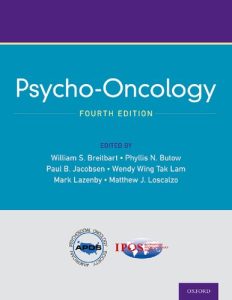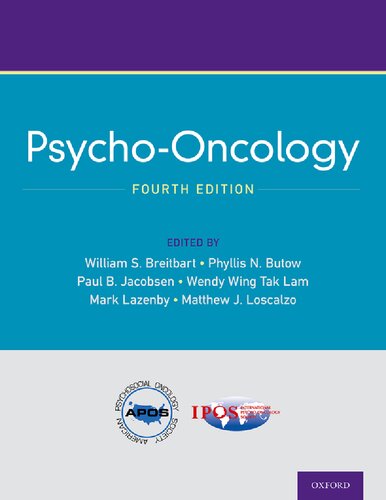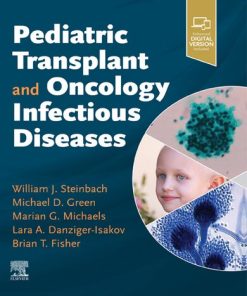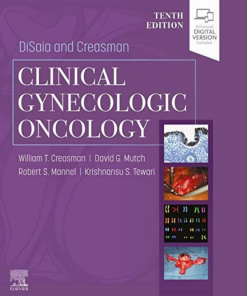Psycho-Oncology 4th Edition William Breitbart (Editor)
$50.00 Original price was: $50.00.$25.00Current price is: $25.00.
Psycho-Oncology – Ebook Instant Download/Delivery ISBN(s): 9780190097653,0190097655
 Product details:
Product details:
- ISBN-10 : 0190097655
- ISBN-13 : 978-0190097653
- Author(s): William Breitbart, Phyllis Butow, Paul Jacobsen, Wendy Lam, Mark Lazenby, Matthew Loscalzo
Originally published in 1998, Psycho-Oncology was the first comprehensive text in the field and remains the gold standard today. Previously led by Dr. Jimmie C. Holland, the founder of the field, this new edition is edited by a team of internationally renowned experts in psycho-oncology. The text reflects the interdisciplinary nature and global reach of this growing field. It covers evidence-based clinical practice guidelines from around the world, survivorship issues, psychotherapeutic interventions, and psychopharmacologic interventions.
Thoroughly updated and developed in collaboration with the American Psychosocial Oncology Society and the International Psycho-Oncology Society, the fourth edition is a current, comprehensive reference for psychiatrists, psychologists, oncologists, hospice workers, and social workers seeking to understand and manage the psychological issues involved in the care of persons with cancer and the psychological, social, and behavioral factors that contribute to cancer risk and survival.
Table contents:
Introduction: Our Past, Our Future—New Frontiers in Psycho-Oncology
Section I Behavioral and Psychological Factors in Cancer Risk and Prevention
1 Tobacco Use and Cessation
2 Diet and Cancer
3 Physical Activity, Sedentary Behavior, and Cancer
4 Sun Exposure and Cancer Risk
5 Psychosocial Factors
6 Viral Cancers and Behavior
Section II Screening for Cancer in Normal and At-Risk Populations
7 Colorectal Cancer Screening
8 Cervical Cancer Screening and HPV Vaccination: Multilevel Challenges to Cervical Cancer Prevention
9 Breast Cancer Screening
10 Prostate Cancer Screening
11 Lung Cancer Screening
12 Skin Cancer Screening
Section III Screening and Testing for Germ Line and Somatic Mutations
13 Psychosocial Issues in Genetic Testing for Breast/Ovarian Cancer
14 Psychosocial Issues in Genetic Testing for Hereditary Colorectal Cancer
15 Psychosocial Issues in Genomic Testing, Including Genomic Testing for Targeted Therapies
16 Psychosocial Issues Related to Liquid Biopsy for ctDNA in Individuals at Normal and Elevated Risk
Section IV Screening and Assessment in Psychosocial Oncology
17 Screening and Assessment for Distress
18 Assessment, Screening, and Case Finding for Depression and Anxiety in People with Cancer
19 Screening for Delirium and Dementia in the Cancer Patient
20 Screening and Assessment for Cognitive Problems
Section V Psychological Issues Related to Site of Cancer
21 Melanoma
22 Lung Cancer
23 Breast Cancer
24 Colorectal Cancer
25 Prostate Cancer and Genitourinary Malignancies
26 Gastrointestinal Cancers
27 Gynecologic Cancers
28 Hematopoietic Dyscrasias and Stem Cell Transplantation/CAR-T Cell Therapy
29 Head and Neck Cancer
30 Central Nervous System Tumors
31 HIV Infection and AIDS-Associated Neoplasms
Section VI Management of Specific Physical Symptoms
32 Cancer-Related Pain
33 Nausea and Vomiting
34 Cancer-Related Fatigue
35 Sexual Problems and Cancer
36 Neuropsychological Impact of Cancer and Cancer Treatments
37 Sleep and Cancer
38 Weight and Appetite Loss in Cancer
39 Body Image—An Important Dimension in Cancer Care
Section VII Psychiatric Disorders
40 Adjustment Disorders in Cancer
41 Depressive Disorders in Cancer
42 Suicide and Medical Aid in Dying
43 Anxiety Disorders
44 Delirium
45 Substance Use Disorders
46 Posttraumatic Stress Disorder Associated with Cancer Diagnosis and Treatment
47 Psychiatric Toxicities of Cancer Therapies: Focus on Immunotherapy and Targeted Therapy
Section VIII Evidence-Based Interventions
Models of Care Delivery
48 Delivering Integrated Psychosocial Oncology Care: The Collaborative Care Model
49 The Engaged Patient: The Cancer Support Community’s Comprehensive Model of Psychosocial Programs, Services, and Research
50 The Role of Implementation Science in Advancing Psychosocial Cancer Care
Interventions During Active Treatment
51 Supportive Psychotherapy in Cancer
52 Cognitive and Behavioral Interventions
53 Metacognitive Approaches
54 Mindfulness-Based Interventions
55 Acceptance and Commitment Therapy (ACT) for Cancer Patients
56 Supportive-Expressive and Other Forms of Group Psychotherapy in Cancer Care
57 Emotion-Focused Therapy
58 Interpersonal Psychotherapy and Cancer
59 Integrative Oncology
Interventions for Families and Couples
60 Psychosocial Interventions for Couples and Families Coping with Cancer
Interventions for Advanced Cancer/End of Life/Bereavement
61 Meaning-Centered Psychotherapy
62 Dignity Therapy
63 Managing Cancer and Living Meaningfully (CALM) Therapy
64 Bereavement Interventions in the Setting of Cancer Care
Interventions for Cancer Survivors
65 Meaning-Centered Group Psychotherapy for Cancer Survivors
66 Physical Activity and Exercise Interventions in Cancer Survivors
Digital Health Interventions
67 e-Health Interventions for Cancer Prevention and Control
68 Digital Health Interventions for Psychosocial Distress (Anxiety and Depression) in Cancer
69 e-Health Interventions for Physical Symptom Control
70 e-Health Interventions for Tobacco Cessation
Section IX Psychosocial Issues at the Time of Diagnosis
71 Treatment Decision Making
72 The Family Meeting: Communication across the Continuum of Cancer Care
Section X Palliative and Supportive Care
73 Psychological and Psychiatric Aspects of Palliative and End-of-Life Care: Synergies between Psycho-Oncology and Palliative Care
74 Prognostic Understanding in Advanced Cancer Patients
Section XI Diversities in the Experience of Cancer
75 Cancer, Culture, and Health Disparities
76 Financial Toxicity in Cancer Treatment
77 The Experience of Cancer as an Immigrant
78 Sexual and Gender Minority Health in Psycho-Oncology
Section XII Bio-Behavioral Psycho-Oncology
79 Psycho-Oncology, Stress Processes, and Cancer Progression
80 Depression, Inflammation, and Cancer
81 Biobehavioral Psycho-Oncology Interventions
Section XIII Geriatric Psycho-Oncology
82 The Older Cancer Patient
83 Geriatric Psycho-Oncology Assessment Issues and Interventions
84 Communicating with the Older Adult Cancer Patient
Section XIV Pediatric Psycho-Oncology
85 Screening and Assessment in Pediatric Psycho-Oncology
86 Psychiatric Disorders in Pediatric Psycho-Oncology: Diagnosis and Management
87 Evidence-Based Psychosocial Interventions in Pediatric Psycho-Oncology
88 Adolescent and Young Adult Patients
Section XV Psychological Issues for the Family and Caregivers
89 Including Family Members in Caring for the Patient with Cancer: A Family-Centered Approach
90 Couples Facing Cancer
91 Cancer Caregivers
92 Addressing the Needs of Children When a Parent Has Cancer
Section XVI Survivorship
93 Fear of Cancer Recurrence
94 Implementing the Survivorship Care Plan: A Strategy for Improving the Quality of Care for Cancer Survivors
95 Adult Survivors of Childhood Cancer
Section XVII Building Supportive Care/Psycho-Oncology Teams
Building Supportive Care Teams: Working Together and Self-Care
96 Integrating Interdisciplinary Supportive Care Programs: Transforming the Culture of Cancer Care
97 Occupational Stress in Oncology Staff: Burnout, Resilience, and Interventions
Health Provider/Patient Communication
98 Principles of Communication Skills Training in Cancer Care across the Life Span and Illness Trajectory
Section XVIII Psycho-Oncology in Health Policy
99 Distress, the Sixth Vital Sign: A Catalyst for Standardizing Psychosocial Care Globally
100 Implementation of Clinical Practice Guidelines for Psychosocial Cancer Care
101 Emerging International Directions for Psychosocial Care: Perspectives from Asia and Low-Middle-Income Countries
Index
People also search:
psycho-oncology 4th edition
psycho-oncology programs
what is psycho oncology
what does a psycho-oncologist do
psychology 4th edition
psycho-oncology jobs
You may also like…
Medicine - Oncology
The MD Anderson Manual of Medical Oncology 4th Edition Hagop Kantarjian
Engineering
Relationships & Lifestyle - The Art of Communication
Public Speaking: Choices and Responsibility 4th Edition William Keith
Jurisprudence & Law
Medicine
DiSaia and Creasman Clinical Gynecologic Oncology 10th Edition William T. Creasman Md (Editor)
Business & Economics - Sales & Marketing
(EBook PDF) Marketing research 4th Edition by William Zikmund B0089A8OME full chapters













